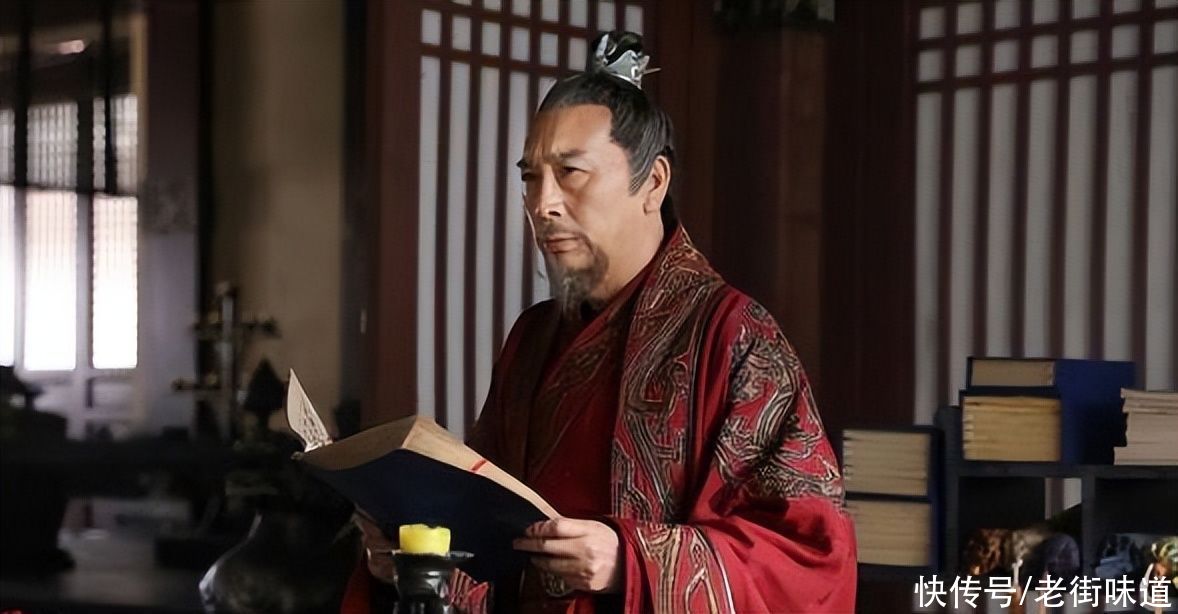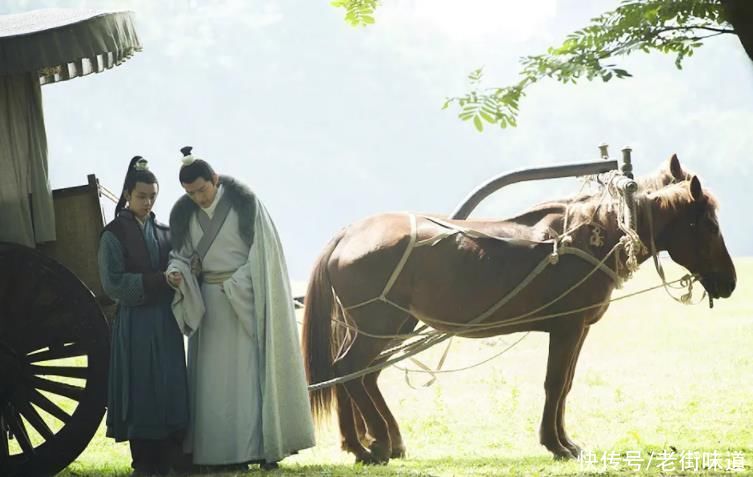內容目錄
Foreword
Yuan Mei’s “Suiyuan Poems ” Volume II said: Shigui reverses the verdict. The so-called reversal of the case means “use instead of its meaning”:
literati use stories, some use them directly, and some use them contrary to their intentions. those who use it. Li Yishan’s poem: It’s a pity that the front seats are empty in the middle of the night, and I don’t ask people to ask ghosts and gods. Although Jia Yi said it, he used it contrary to his intention. Song Dynasty Yan Youyi “Yi Yuan Fei Huang”

1. Those who use the opposite way
Use the allusion to use the thing, use the allusion directly, that is, use the allusion according to the original meaning, and use the allusion instead of the meaning, that is, the allusion from the negative side. Li Shangyin’s “Jia Sheng” poem says:
The Xuanshi seeks talents to visit and chase ministers, and Jia Sheng’s talent is even more incoherent.
The poor front seat in the middle of the night doesn’t ask people to ask ghosts and gods.
Under the court officials Zhou Bo and Guan Ying, Jia Yi was exiled as the imperial grandfather of Changsha.
The Emperor Wen of the Han had always admired Jia Yi, so he recalled Jia Yi. However, when Emperor Wen of the Han Dynasty summoned Jia Yi, he did not ask about the policy of governing the country and the people, but only about ghosts and gods.
This is a bit like Li Bai entering the palace. He thought he was going to be Lu Zhonglian, but he didn’t expect Dongfang Shuo to be inferior. The allusion of “Jia Sheng” satirizes the court’s misunderstanding of the use of talents.
In “Yiyuan Female Yellow”, it is also mentioned that Lin Hejing used Sima Xiangru’s allusion:
Lin Hejing’s poem: Maoling asks for a resignation in another day, still happy Book of Zen. Although it is said to be similar, it is also used in the opposite way.
Lin Fu, courtesy name Junfu, later known as Mr. Hejing, lived in seclusion in the lonely mountain of West Lake in Hangzhou. He wrote “self-made longevity hall because of the book’s uniqueness” poem:
The green hills on the lake are opposite to the hut, and the autumn color on the tomb is also sparse.
Mao Ling asked for the manuscript in the future, but he still liked that there was no Zen book.
Before Sima Xiangru died, in order to please Emperor Wu of the Han Dynasty, he specially wrote “Fengchan Shu” to praise the emperor.
Lin Fu lived in the prosperous age of the Northern Song Dynasty, but was far away from fame and fortune for life. He was a real hermit. Lin Fu said that he would not write “Feng Chan Shu“, which was to express his lofty ideals. However, when he compared himself with Sima, it was a bit of a color.

Second, the angle of reversal
In Zhou Zhenfu’s “Poems and Examples”, It is classified in the chapter “Rhetoric and Use”. The use of things is the use of dictionaries. There is a historical story first, and later generations can reverse the case. Therefore, reversing the case can be regarded as a kind of scripture.
However, reversal may not completely overturn the previous conclusion. Poets may have different views on historical figures or historical events from different perspectives.
For example, for Jiang Ziya, a historical figure, poets in the past dynasties have different translation poems. For example, Wang Zhenbai’s “Inscription on Yanling Diaotai”:
The mountains are blue at four seasons, and the sound of streams is clear.
Yan Ling loved this scene and looked down at the Duke of Han.
At the beginning of the month of fishing, the singing style is light.
Ying pity Wei Binsou, Kuang Guozheng discussing soldiers.
Ying pity Wei Binsou, Kuang Guozheng discussing soldiers. Wang Zhenbai’s devaluation of Jiang Ziya, a talented man in the country, is to contrast Yan Ziling’s disdain for wealth, fame and fortune. Jiang Ziya used the pretense of fishing in order to gain the appreciation of King Wen and to make a career in the future. However, Yan Ziling had to escape the reuse of Emperor Guangwu.
Jiang Ziya and Yan Guang have different aspirations. One wants to protect the country, and fishing is the shortcut to Zhongnan;
During the prosperous Tang Dynasty, Sun Ti wrote “Fenghe Li Youxiang Rewards Huichanglin Pavilion”:
Xianxiang accompanied him at the beginning, and Lingshan was serene.
As a county near Jingxiong, open a pavilion to favor Pingjin.
The place is better than the forest pavilion, and the feasts are frequent.
Hundred springs are surrounded by vegetation, and Wanjing is a suburban area.
Virtue and spring are harmoniously prosperous, and Gong will create neighbors.
I also scoffed at Wei Binsou, who was alone at the end of the year.
Also sneered at Wei Binsou, who was alone at the end of the year. In this poem, Jiang Ziya has become a negative model again, but this does not deny Jiang Ziya’s success, but jokes that Jiang Ziya is very old and went out to find a job. It is not as good as Li Youxiang’s success. This is to reverse the verdict from the perspective of age, to set off Li Youxiang (should be the traitor Li Linfu) early fortune.
Let’s say again, it is also an allusion to Jia Yi, and Li Bai also used another angle in “Baling Gifts to the Jiashe People”. The poem reads:
Jia Sheng looks west to recall Beijing, and Xiangpu moves south without complaining.
The Holy Lord was kind to Emperor Wen of the Han Dynasty, but he did not send him to Changsha.
Jia Sheren and Du Fu Wangwei Cen Shen together with Jia Zhi who wrote “Early Dynasty Daming Palace”. During the reign of Emperor Suzong of Tang Dynasty,Jia Zhiwas demoted to Sima of Yuezhou (Yueyang City, Hunan Province). Li Bai comforted him and said,you are more fortunate than Jia Yi, at least the emperor did not ban you to Changsha.

Third, reversion of other people’s poems
borrowing his poems in poems Famous sentences are also a kind of allusions, which are different from historical figures and historical events.
Reversal, there is also this way. For example, the poet Xie Tu of the Southern Dynasty famously said:
Yuxia is scattered into beauty, and Chengjiang is as quiet as practice. “Late Climbing Three Mountains and Looking at Jingyi”
Song lyricist Du Anshi’s “Butterfly Loves Flowers” is a thank-you sentence: . Lingman lotus, as long as possible to hook the line.
Xiang Wancheng Jiang is as quiet as a practice. The wind sends back the sail and flies like an arrow….
The Northern Song Dynasty Guo Xiangzheng’s “The Boat Passing Tianmen Mountain” uses Xie sentence cloud in reverse:
The light boat is fortunate to borrow the east wind Then, the sail hung in danger and the electricity was shocked.
Thousands of white horses go through the gate of heaven, who says Chengjiang is as quiet as a practice?
Li Bai’s “Moon under the Moon in the West Tower of Jinling City” is also using a thank you sentence:

Concluding remarks
Huang Sheng mentioned in “Tang Poems”:
The use of text is real, and the use of poetry is virtual. The truth is the principle, and the truth is unswerving; the imaginary is the main interest, and the interest is not one-sided.
The general idea is that, different from the fact that the composition is concerned, the poetry is the main interest, and everyone should not put it. The poet’s words are too serious. These reversal poems of the ancients are not really to argue right and wrong, but to fill in some novelty and interest for their poems.
To give an inappropriate example, the news of dogs biting people has no traffic. , people bite a dog and there will be traffic.
@Old Street Taste
Fu Shui not only speaks of water, but also the front and back of the water, the positive description and side contrast of the poems of chanting things